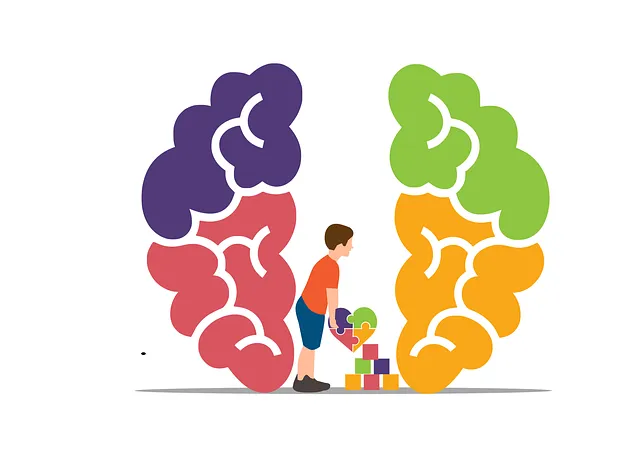Kaiser Permanente's focus on cultural competency training in Colorado Springs enhances patient experiences and outcomes by empowering healthcare professionals to provide personalized care to a diverse population, reducing barriers to mental health services. Through interactive workshops, digital tools, and community feedback, they foster an inclusive environment that respects patients' cultural identities, prevents burnout among mental health workers, and promotes self-care practices, ultimately improving overall well-being in the region. The organization's strategic initiatives leverage the Kaiser Permanente mental health number Colorado Springs to track progress and ensure compliance with regulations related to sensitive patient information.
Healthcare provider cultural competency training is an essential component in enhancing patient care and outcomes. This article delves into the crucial concept of cultural competency within healthcare, exploring its impact on patient experiences and results. With a focus on Kaiser Permanente’s mental health services in Colorado Springs, we examine effective training strategies and emphasize the importance of fostering a culture of inclusion. By adopting continuous improvement practices, healthcare organizations can better serve diverse patient populations.
- Understanding Cultural Competency in Healthcare: An Overview
- The Impact of Cultural Sensitivity on Patient Outcomes
- Kaiser Permanente Mental Health Services: A Colorado Springs Focus
- Training Strategies for Healthcare Providers: Effective Learning Methods
- Building a Culture of Inclusion: Continuous Improvement for Healthcare Organizations
Understanding Cultural Competency in Healthcare: An Overview

Cultural competency in healthcare is a crucial aspect that goes beyond treating symptoms; it involves understanding and respecting patients’ diverse cultural backgrounds, beliefs, and values. This concept is essential, especially in today’s diverse societies, where healthcare providers frequently interact with individuals from various ethnic, racial, and socioeconomic groups. In the case of Kaiser Permanente mental health services in Colorado Springs, cultural competency training equips healthcare professionals to offer more personalized and effective care.
By recognizing and addressing cultural differences, healthcare providers can enhance patient outcomes, improve communication, and reduce potential barriers to accessing mental wellness services. This approach is particularly vital for preventing burnout among healthcare workers, especially those in mental health fields. Given the increasing demand for mental health awareness and services, burnouts prevention strategies that incorporate cultural competency training are essential to ensuring sustained quality care.
The Impact of Cultural Sensitivity on Patient Outcomes

Cultural sensitivity plays a pivotal role in shaping patient outcomes, especially within diverse healthcare settings. When healthcare providers exhibit cultural competency, they create an environment where patients feel understood and respected, leading to improved engagement and adherence to treatment plans. This is particularly relevant for organizations like Kaiser Permanente mental health services in Colorado Springs, where a wide range of cultural backgrounds are served.
By incorporating Mental Health Education Programs Design that focus on conflict resolution techniques and stress reduction methods, healthcare providers can better navigate interpersonal differences and create safe spaces. Such initiatives enhance communication, reduce potential barriers to care, and foster trust between patients and clinicians. As a result, patients are more likely to openly discuss their mental health concerns, leading to earlier interventions and improved clinical outcomes.
Kaiser Permanente Mental Health Services: A Colorado Springs Focus

Kaiser Permanente Mental Health Services has made a significant impact in Colorado Springs, focusing on providing comprehensive care that addresses the unique cultural needs of the community. The organization understands the importance of cultural competency in healthcare, recognizing that effective treatment requires an understanding of patients’ backgrounds and experiences. By prioritizing this aspect, Kaiser Permanente offers a safe space for individuals to seek support for their mental wellness.
Through various initiatives, they foster self-awareness exercises and promote Mind Over Matter principles, empowering residents to take charge of their mental health journey. These efforts have contributed to creating a more inclusive environment where people from diverse cultural backgrounds can access evidence-based practices tailored to their specific needs. The dedication of Kaiser Permanente’s mental health services in Colorado Springs serves as a testament to their commitment to enhancing the overall well-being of the community.
Training Strategies for Healthcare Providers: Effective Learning Methods

Effective training strategies are essential to enhancing healthcare provider cultural competency, especially in diverse communities like Colorado Springs. At Kaiser Permanente, they understand this need and have developed innovative learning methods to cater to various learning styles. Interactive workshops, featuring real-life case studies and role-plays, allow providers to practice culturally sensitive communication skills in a safe environment. These sessions encourage critical thinking and problem-solving, enabling healthcare workers to navigate complex patient interactions with confidence.
Moreover, incorporating digital tools and online resources has proven effective for Burnout Prevention Strategies for Healthcare Providers. Self-esteem improvement workshops delivered via virtual platforms can reach a broader audience, offering flexibility in scheduling and attendance. Additionally, risk management planning for mental health professionals benefits from digital modules that outline best practices for handling sensitive patient information, ensuring compliance with regulations like those governing the Kaiser Permanente mental health number Colorado Springs.
Building a Culture of Inclusion: Continuous Improvement for Healthcare Organizations

In today’s diverse healthcare landscape, building a culture of inclusion is not just a moral imperative but also a strategic necessity for organizations like Kaiser Permanente in Colorado Springs. This involves fostering an environment where all patients and staff feel valued, respected, and understood, regardless of their cultural background, race, gender, or mental health status. Continuous improvement is the key to achieving this goal. Organizations must actively seek feedback from their communities and employees, using metrics such as the Kaiser Permanente mental health number Colorado Springs, to gauge areas needing enhancement.
By integrating Mental Wellness Coaching Programs and promoting Self-Care Practices, healthcare institutions can empower individuals to take an active role in managing their well-being. Stress Management techniques become invaluable tools in this process, enabling both patients and providers to navigate complex cultural interactions with resilience and empathy. This holistic approach not only improves patient outcomes but also enhances the overall work environment, fostering a sense of belonging that is essential for delivering high-quality care.
Healthcare provider cultural competency training is not just a best practice—it’s a necessity in today’s diverse society. As evidenced by the success of programs like Kaiser Permanente Mental Health Services in Colorado Springs, investing in inclusive learning methods can significantly improve patient outcomes and foster better healthcare experiences for all. By adopting effective training strategies and cultivating a culture of inclusion within healthcare organizations, we can ensure that every patient receives care tailored to their unique cultural background. The time to act is now, as the benefits extend far beyond improved services; they contribute to a more equitable and compassionate healthcare system for everyone.






